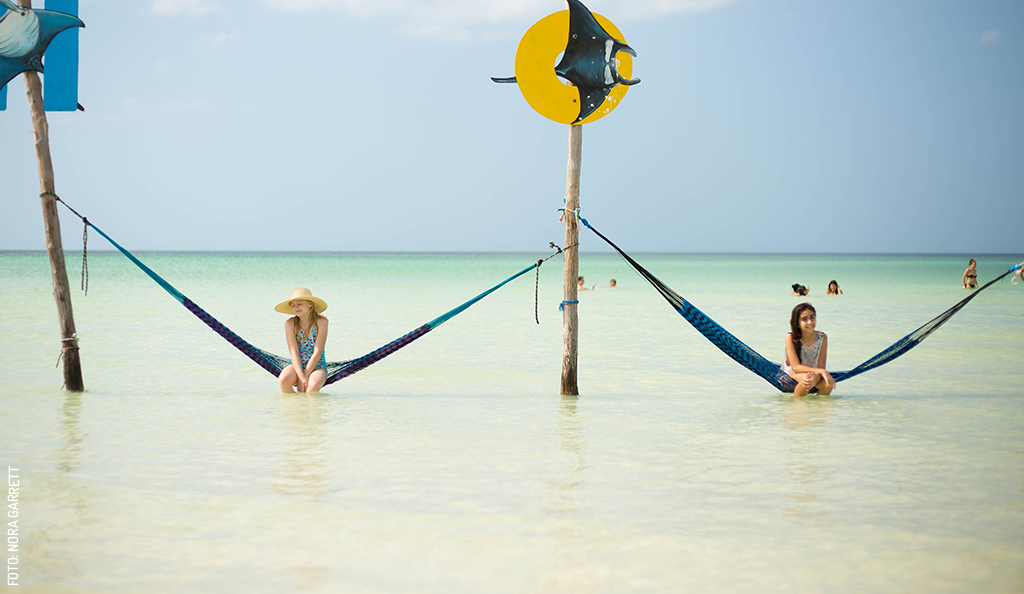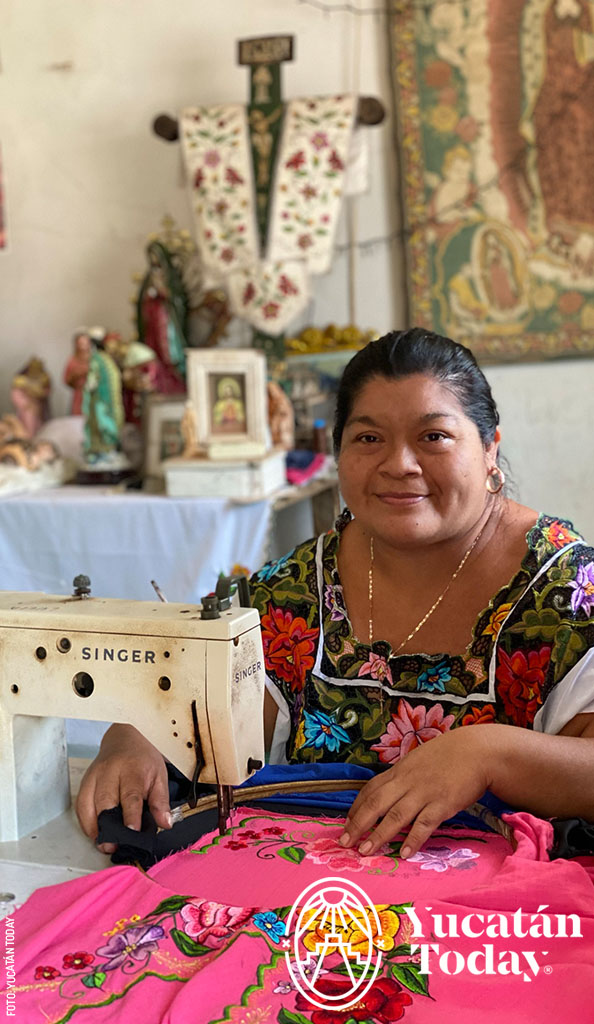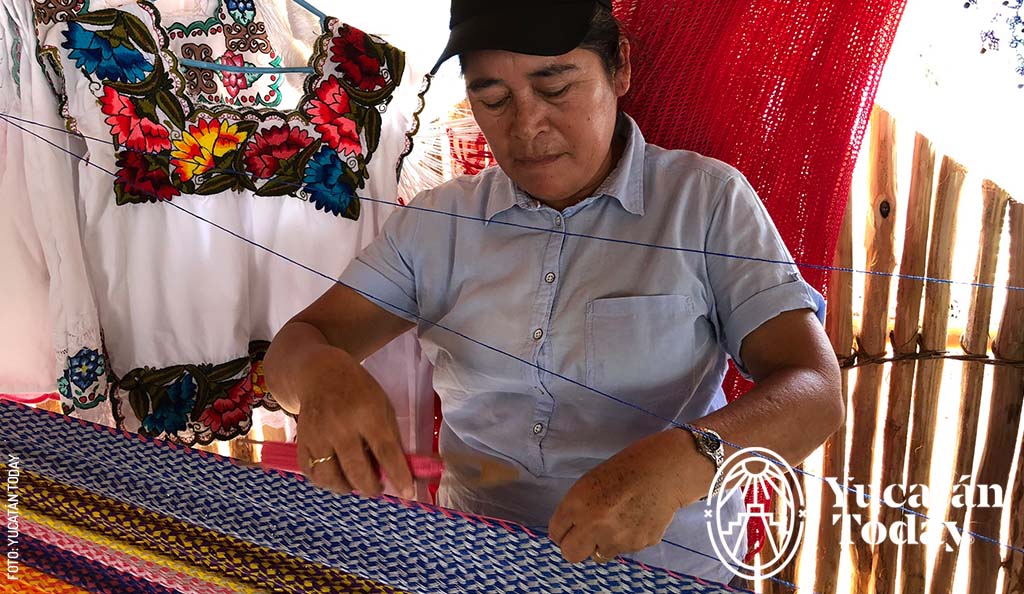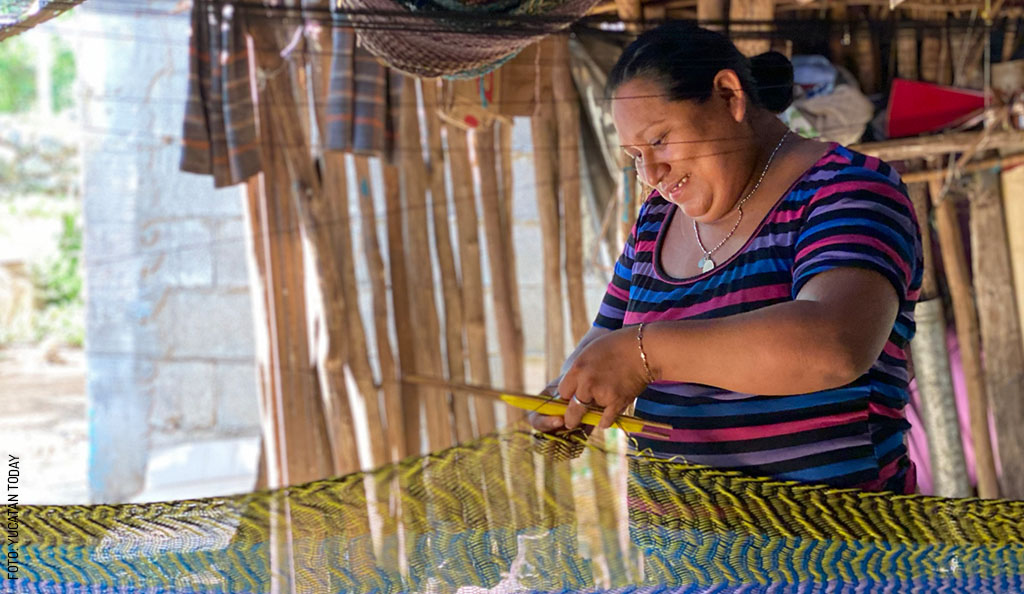
How to Choose Guayaberas and Hammocks like a True Yucateco
Yucatán is a state brimming with art, music, culture, and traditions, which make it inevitable to fall in love and want to take a piece of it home. However, if you're visiting, you may not have the time to compare options and go beyond what a vendor can promise you.
As a Yucateca, I would love for you to take a lasting and memorable souvenir, and for the experience of choosing it to be enjoyable and easy. That's why I'll be sharing with you some recommendations for choosing one of the three most typical options here: an Hipil (a traditional female garment), a Guayabera (a traditional male garment), or a hammock.
Choosing wisely among the countless options you'll come across is not an easy task. Fortunately, as Yucatecos frequently use these items, we already know what to consider to ensure they are of good quality.
How to Choose a Guayabera to Last you a Lifetime?
The main factors to consider when selecting a guayabera are the fabric and the craftsmanship.
Regardless of your size, height, or weight, you’ll always find the ideal fit for you, thanks to the straight cut that characterizes this garment. The traditional Guayabera can be made from different types of fabric such as linen, Japanese linen, or cotton, which results in varying price ranges. Guayaberas made from pure linen tend to have a higher cost due to the quality and durability that this material naturally possesses.
A tip to determine if your garment is 100% linen is how easily it wrinkles; even ironing it might be a challenge. Although a wrinkled Guayabera is a sign of elegance (which is why linen is often referred to as "arruga fina" or fancy wrinkle), if you prefer something different, choose a Guayabera made from cotton fabric, as they tend to remain smoother for longer.
Good craftsmanship is easily noticeable: the shoulders should be symmetrical, and the stitches should be precise and detailed. Sizes are usually standardized according to Yucatecos’ body types, but specialized stores, especially those that are manufacturers, offer adjustment services if you require a special measurement. If this is the case, make sure to do your shopping in advance, as your adjustments may not be done immediately.
From Hipiles to Blouses, Embroidery Everywhere
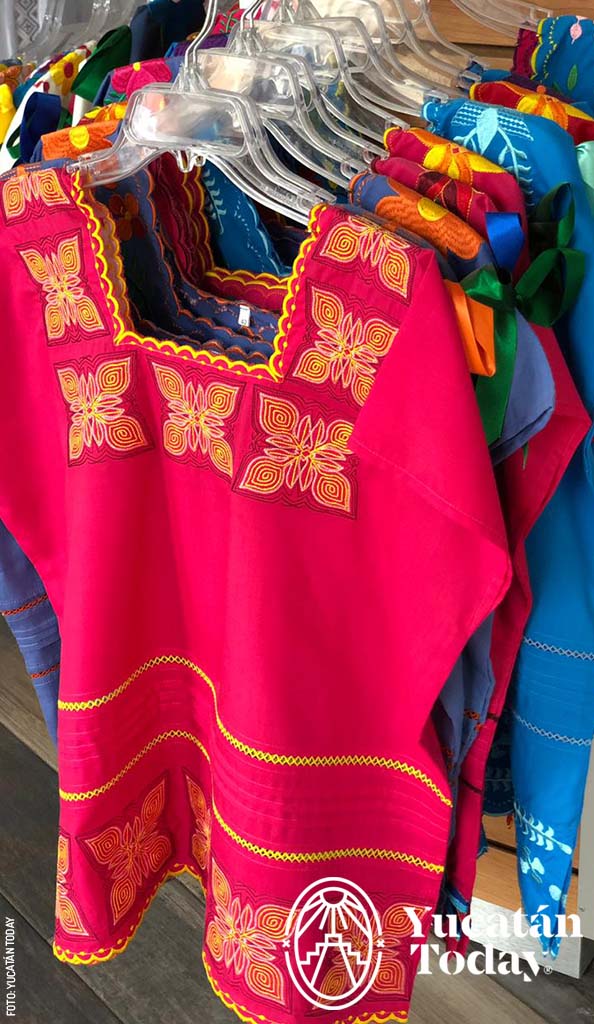 The Hipil is a garment that every Yucateca woman wears proudly; just like Guayaberas, it has served as a foundation and inspiration to create new styles of clothing that have become popular. A clear example is the well-known Hipil blouse.
The Hipil is a garment that every Yucateca woman wears proudly; just like Guayaberas, it has served as a foundation and inspiration to create new styles of clothing that have become popular. A clear example is the well-known Hipil blouse.
Both the Hipil and blouse can be made from different types of fabric, including Jamaican cotton, Ticatex fabric, Korean cotton, flame linen, 100% linen, and even cotton manta. The important thing is to always choose a lightweight fabric that is comfortable to wear daily in the hot climate of our state.
Some key elements, such as the pleats in Guayaberas, and the embroidery in Hipiles and traditional blouses, are mostly artisanal (done either by hand or freehand, as I’ll explain later). However, in some cases, they may be computer-woven. The difference can be clearly seen in the finishings; check the back of the garment and you’ll see it. Machine-made ones will have a white synthetic fabric on the back, while handmade ones will have cleaner and more detailed finishes.
The color gradient in the embroidered flowers of Hipiles and traditional blouses is known as "Matizado". Although a sewing machine is used, the process is considered to be artisanal because the embroiderer must control the machine with a pedal, and manually move the fabric to create the designs.
Finally, it's important to keep in mind that the colors, shapes, and designs are entirely based on the customer's preference, but the sizes are vital because these pieces are made with non-stretch fabrics. Therefore, it's important to know your size to choose the right blouse that will accompany you on your journey.
Both the Hipil and the blouses are characterized by their square shape. They are usually worn loosely, and the only aspects to consider are their length and their shoulder fit. However, you may find that some more modern pieces are fitted; if the pieces you are considering buying fall into this category, check to make sure the seams are even. 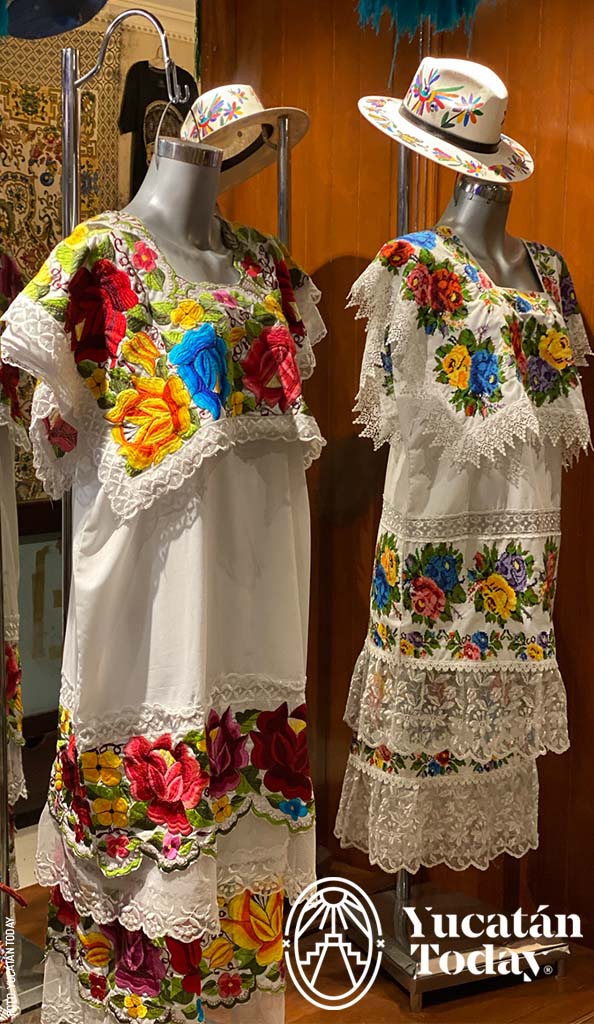 Regarding the length of the blouses, you’ll find everything from crop tops to those that reach just above the hips.
Regarding the length of the blouses, you’ll find everything from crop tops to those that reach just above the hips.
On the other hand, the traditional Hipil should reach below the knee, but more modernly tailored dresses are designed to be shorter. Make sure to ask for the length that is most comfortable for you.
A blouse made of natural fibers with machine-made embroidery usually ranges around $300 pesos. Variations such as linen fabrics or hand-embroidered cross-stitch can increase prices up to $1,500 pesos if purchased directly from artisans. Hipiles are usually priced $700 pesos and up.
Brief Tips for Choosing Your Ideal Hammock
A hammock is more than just a weaving of threads; it’s the loyal companion to which we Yucatecos entrust our rest. That's why it's important to choose the right one for each person.
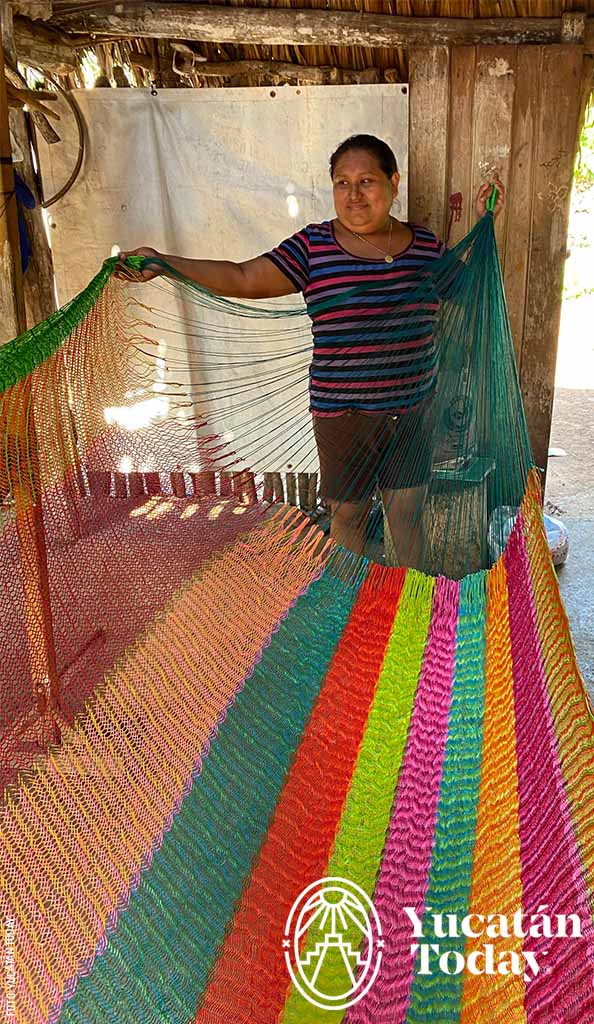 The main attributes of a good hammock are that it has a dense weave, sturdy arms (with enough threads), and an orderly weave; its stitches should be small and tight. The wrist (the loop from where you hang the hammock on the wall) can be reinforced with leather to make it more durable. Lastly, the edges of the hammock should be pretty thick because, being the final part, if the threads break, the weave will gradually start to unravel.
The main attributes of a good hammock are that it has a dense weave, sturdy arms (with enough threads), and an orderly weave; its stitches should be small and tight. The wrist (the loop from where you hang the hammock on the wall) can be reinforced with leather to make it more durable. Lastly, the edges of the hammock should be pretty thick because, being the final part, if the threads break, the weave will gradually start to unravel.
This typical Yucatecan item comes in standardized sizes similar to bed mattresses: single, double, and king size. To determine the best size for you, you can ask the vendor to show you a model of each so you can see the differences between them. You should be able to stretch out comfortably in the hammock (diagonally) without the weave opening excessively. How much slack should be left in the fabric (with you inside) is a personal preference, but consider at least about 30 cm for comfort. If there’s more slack, it will be easier to "roll yourself up" in the hammock.
Finally, the threads used to weave the hammock are a determining factor for the quality and price of the product. There are different types of threads; the most common ones are silk (also known as "dos elefantes"), nylon, and cotton. In some cases, crochet is still used, which can make weaving the hammock more challenging.
Silk, cotton, and crochet hammocks are the coolest and most durable, so they tend to be more expensive. On the other hand, nylon hammocks are useful for outdoor use and are very affordable, but they are usually less comfortable, and can make you hotter. Finally, the gauge of the thread (i.e., the thickness) will determine the production time of the hammock and even the recommended use. For example, hammocks made with a gauge of 24 (thicker) are used for outdoor settings such as beaches or gardens, while standard hammocks made for sleeping at home use a gauge of 12.
Prices can vary depending on the quality of the thread and how complicated the hammock weave is, but they primarily depend on the size. In Don Juanito's workshop in Tikxokob, cotton hammocks cost around $650 pesos for a single size, a double hammock is around $950 pesos, and a king-size hammock ranges between $1,200 and $1,500 pesos.
Especially when buying from small businesses or directly from artisans, it’s important to recognize the craftsmanship behind each product you purchase, the hours it took to make it, and the difficulty involved. These factors are proportional to the cost of the artifact or garment.
Now you are ready to bring a piece of Yucatán in your luggage!
Traditional clothing
Artesanías del Mayab Calle 105 #563 x138-A, Los Héroes Tel. 999 646 1931
Ábito Stores in: Calle 7 #451 x 22 y 24, Colonia Altabrisa, local #127 top floor of Plaza Altabrisa.
Calle 60 #29 x41 y 20b, Colonia Revolución, local #140 ground floor of Plaza Galerías.
Calle 60 #346, Zona Paseo de Montejo, local #10a ground floor of Paseo 60.
Calle 24 #608 Zona Cabo Norte, local #031 top floor of Plaza La Isla.
Calle 56a #451 x Av. Colón y Av. Cupules, local #32 ground floor of Hotel Fiesta Americana.
Carretera Mérida - Umán Km 4.5 (at the Mérida International Airport).
Tel. 999 927 0033 ext. 117 Tel. 999 116 1097 mktweb@abito.com.mx www.abito.com.mx
IG: @abitolino FB: Abito
Hammocks
Don Juan de Dios Pool Manufacturer, Tikxokob Tel. 991 106 7373 or 991 103 3809
Author: Goretty Ramos
Feminist communicator with delusions of an artist and screen printer. Research, learn and share.
Receive the latest articles and much more from the best of Yucatán in your email!
Related articles
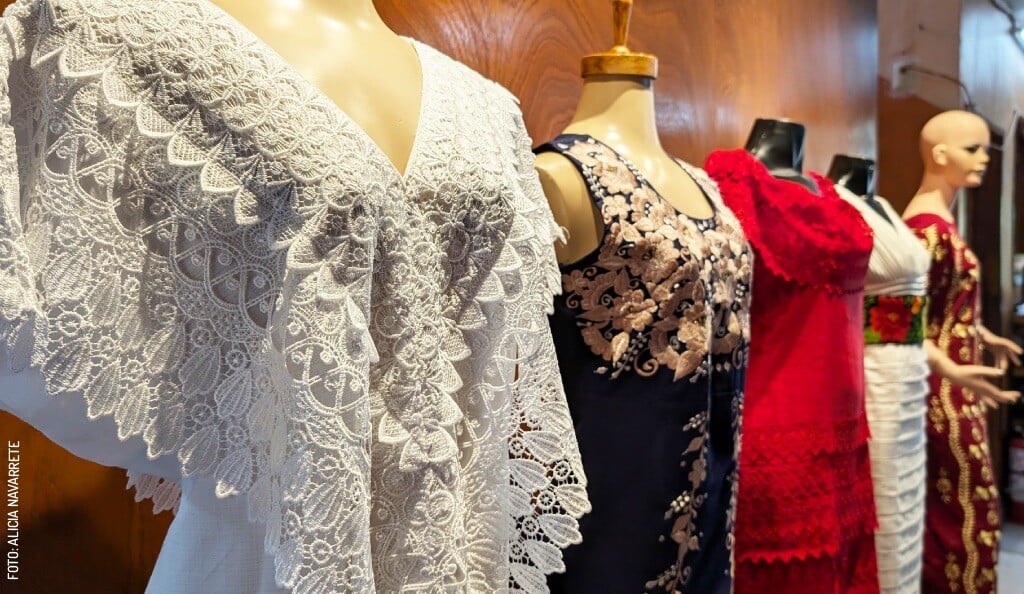
Yucatán’s most iconic handcrafts: artisan towns
If you want to take a little piece of Yucatán home, find out which villages specialize in making hammocks, furniture, weavings, pottery, and more.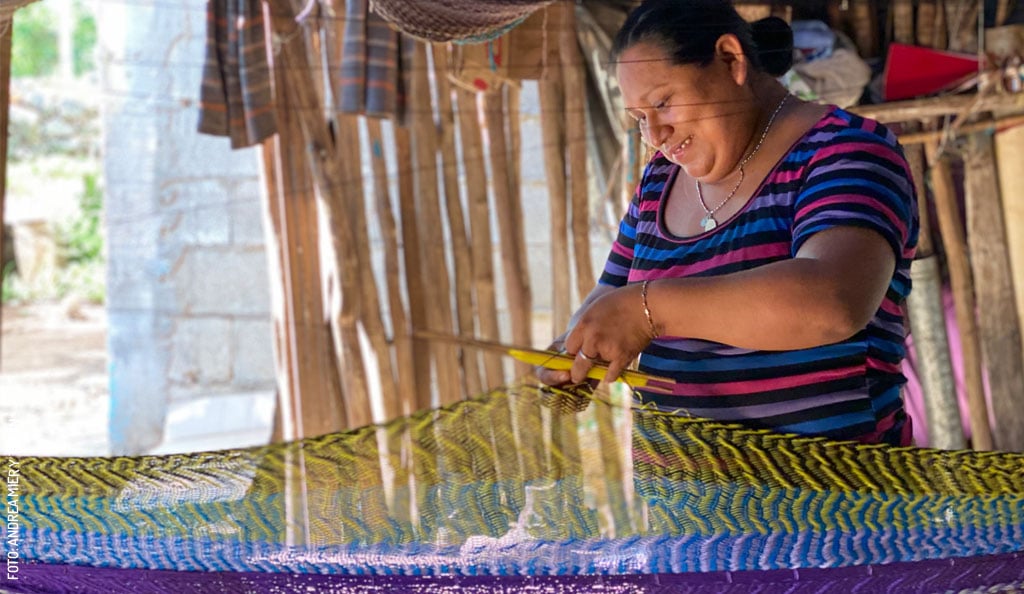
Hammocks: a legacy woven by hand
Yucatan Hammocks: An artisanal legacy woven thread by thread. Discover the art, patience, and skill of weaving Yucatan culture into every hammock.